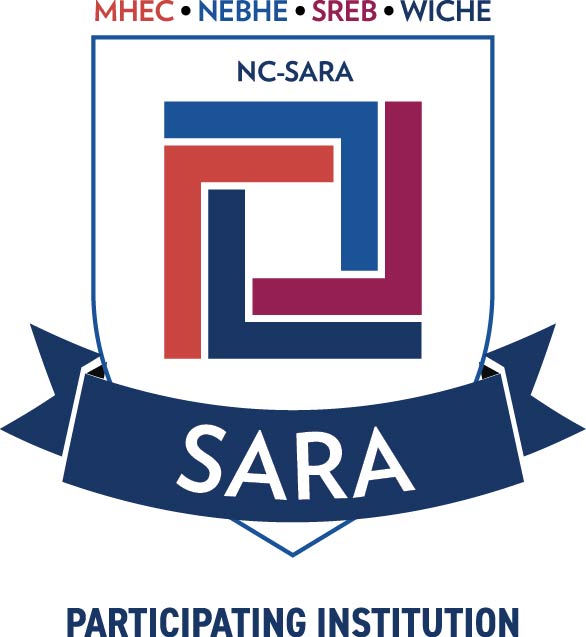Programs Leading to State-Regulated Professional Licensure or Certification
This resource is intended to help students, applicants, and prospects better understand the connection that many FGCU programs have to state-regulated professional licensure or certification. While specific requirements can and often do vary by state, typically, requirements include earning a degree or other educational credential in the field from an institution and program that meet certain eligibility requirements in that state (e.g., accredited status). To be eligible to apply for licensure or certification, graduates must often meet additional criteria such as passing a state or national exam, working in field for a minimum period of time, and/or completing a certain number of clinical hours.
The FGCU programs listed below provide preparation for practicing in fields in which state-regulated professional licensure or certification may be available. If your career plans include pursuing licensure or certification, it is important to become educated on the credentialing requirements of the state in which you hope to practice. This page was created as a starting point to help connect you to this information. Clicking on the program of interest below will open additional information regarding state licensing outside of Florida and contact information for program personnel who can help answer specific questions in this regard and who will do their best to connect you to the credentialing requirements of the state in which you intend to practice.
FGCU is a member of SARA (State Authorization Reciprocity Agreements) and approved by the National Council for State Authorization Reciprocity Agreements.
BEFORE APPLYING

Professional Licensure or Certification Information provides important disclosures
about professional licensure and certification outside of Florida to current and prospective
students.
For additional guidance provided by NC-SARA, refer to their information page on Professional Licensure.
https://nc-sara.org/resources/professional-licensure
Select professions (e.g. accountants, social workers, physician assistants, etc.) require you obtain licensure or certification beyond your degree in order to hold a position in that field. Professional licensure regulations and requirements vary from field to field, from state to state and may vary from year to year.
Florida Gulf Coast University’s academic programs prepare students to meet the educational requirements for professional licensure or certification in the state of Florida. For students considering a program that leads to licensure or certification, at this time, FGCU cannot determine whether our programs meet the licensing requirements in every state for every program.
Each state and U.S. territory has an authority, be it public or private, that is responsible for overseeing the licensure requirements of the various professions in that state. If you plan to pursue state-regulated professional licensure or certification in any state outside of the state of Florida, please contact the appropriate licensing agency or agencies. We have provided lists below to request information and additional guidance before beginning or continuing a program that leads to licensure or certification. If you have questions, please contact your FGCU academic advisor or program coordinator.
Need to File a Complaint?
Step 1) Follow the FGCU Student Complaint Resolution Process:
At FGCU, students are encouraged to resolve concerns and complaints informally by bringing the matter directly to the faculty or staff member. Faculty and staff are expected to respond to a student in a reasonable timeframe to assist in the resolution.
Step 2) Filed a grievance, but haven't gotten resolution at FGCU? File a complaint with the Florida Board of Governors:
If the student is not satisfied with the outcome of the complaint he/she may contact the, Florida Board of Governors, State University System, 325 W. Gaines St., Suite 1614, Tallahassee, FL 32399-0400, 800-245-0466; FL BOG – File a Complaint https://www.flbog.edu/about-us/inspector-general/file-a-complaint/
Step 3) Filed a grievance, but haven't gotten resolution from the university or the Board of Governors?
Distance Education Students Enrolled through FL-SARA
Distance education students, who have completed the internal FGCU grievance process and the applicable state process as outlined by the Florida Board of Governors, may appeal non-instructional complaints to the FL-SARA PRDEC Council. For additional information on the complaint process, visit:
Visit FL-SARA Complaint Process page
Additional Disclosures
The Higher Education Opportunity Act requires colleges and universities that participate in federal student aid programs to disclose certain information to current and prospective students and to university employees.
State Licensing Boards by College and School
In the section below, you will find links to each of FGCU’s programs that may lead to licensure in other states. Links are also provided to the organizations that govern professional licensure in your state or can give you more guidance on licensure in your state. FGCU strongly suggests contacting the professional board specific to your career path to make sure you’re aware of its licensing requirements and your academic path is appropriate.
- Early Childhood Education (B.A.)-2025 Review of State Requirements
- Elementary Education (B.A.)-2025 Review of State Requirements
- School Counseling (M.A.)-2025 Review of State Requirements
- Music Education (B.M.E.)-2025 Review of State Requirements
- Secondary Biology Education (B.A.)-2025 Review of State Requirements
- Secondary Mathematics Education (B.A.)-2025 Review of State Requirements
- Secondary Social Science Education (B.A.)-2025 Review of State Requirements
- Special Education (B.A.)-2025 Review of State Requirements
- TCC Teacher Credential Certificate Program
- TIP Teacher Immersion Program
- Clinical Laboratory Science (B.S.)-2025 Review of State Requirements
- DPT-2025 Review of State Requirements
- Clinical Mental Health Counseling (M.A.)--2025 Review of State Requirements
- MPAS-2025 Review of State Requirements
- Occupational Therapy (M.S.)-2025 Review of State Requirements
- Nursing (B.S.N.)
- BSN to DNP Doctor of Nursing Practice
- MSN to DNP Nurse Anesthesiology
- MSN to Doctor of Nursing Practice
- DNP Nurse Anesthesiology
- Social Work (B.S.W.)--2025 Review of State Requirements
- MSW Social Work--2025 Review of State Requirements
